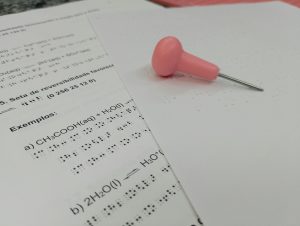Preparing Students for Ethical Leadership and Citizenship
Ethical leadership and citizenship are vital qualities that must be nurtured in students to prepare them for their future roles as responsible members of society. In today’s complex and ever-changing world, it is crucial for students to not only possess academic knowledge but also have a strong sense of ethics and civic responsibility. As educators, it is our responsibility to instill in students a moral compass that will guide them towards making ethical decisions and taking active roles in their communities. In this article, we will explore the importance of preparing students for ethical leadership and citizenship and provide practical tips for educators on how to instill these values in the classroom.
The Importance of Ethical Leadership and Citizenship
Ethical leadership refers to the ability to make decisions and take actions that align with moral values and principles. In the corporate world and beyond, ethical leadership is highly valued as it promotes transparency, honesty, and fairness. Similarly, citizenship involves being an active member of a community and contributing positively to society. In a world that is facing numerous challenges, such as environmental issues, social injustices, and political conflicts, individuals with strong ethical values and active citizenship are crucial in driving positive change.
Nurturing Critical Thinking Skills
One of the key ways to prepare students for ethical leadership and citizenship is by developing their critical thinking skills. By encouraging students to think critically, we are helping them to question, analyze and evaluate information, ideas, and actions. Critical thinking enables students to assess ethical dilemmas from different perspectives, identify potential consequences, and make sound moral judgments. In the long run, this will help them to become responsible leaders who are able to make ethical decisions that benefit both themselves and society.
Promoting Open Discussions
Open discussions are an effective way to engage students in ethical issues and encourage them to voice their opinions. By creating a safe and respectful environment, students can freely express their thoughts and beliefs. As educators, we can facilitate open discussions by introducing relevant ethical dilemmas and encouraging students to share their views and ideas. This will not only help them to think critically but also to understand and appreciate different perspectives. It also fosters a sense of respect and empathy towards others, which are essential qualities of ethical leadership and citizenship.
Encouraging Service Learning
Service learning is a powerful tool that combines academic learning with community service. By engaging in service learning activities, students develop a deeper understanding of societal issues and actively contribute to solving them. This not only promotes active citizenship but also instills a sense of responsibility and compassion towards others. Service learning also allows students to apply their academic knowledge to real-world situations, making their learning more meaningful and relevant.
Setting an Example
As the famous saying goes, “Practice what you preach.” As educators, it is essential for us to lead by example. Our actions and behaviors are closely observed by our students, and we must strive to exemplify ethical leadership and citizenship. This includes being transparent, fair, and honest in our dealings with students, colleagues, and the community. By setting a positive example, we can inspire our students to follow in our footsteps and become ethical leaders and responsible citizens.
Conclusion
In conclusion, preparing students for ethical leadership and citizenship is a crucial aspect of education. By nurturing critical thinking skills, promoting open discussions, encouraging service learning, and setting a positive example, we can instill in students the values of ethical leadership and active citizenship. These qualities will not only benefit our students as individuals but also contribute to a better and more just society.










